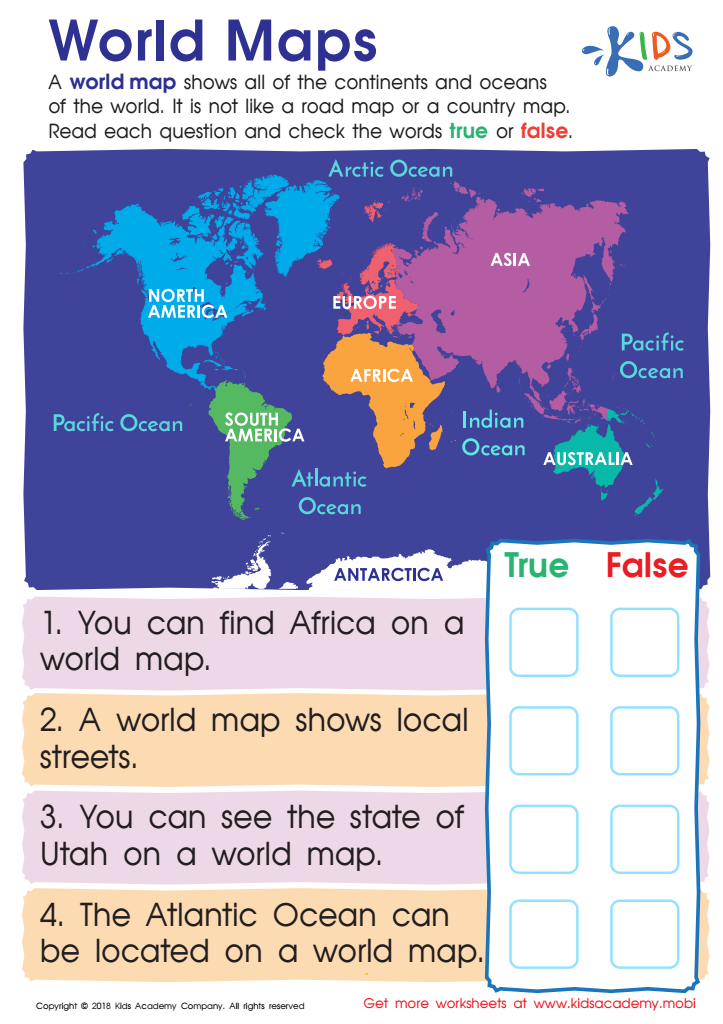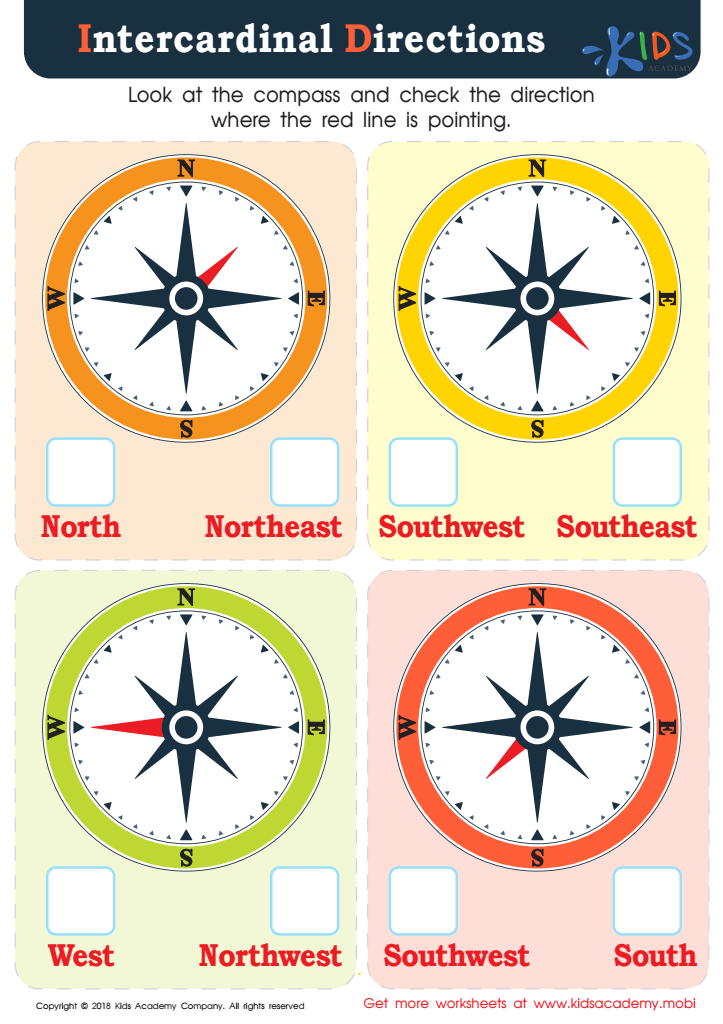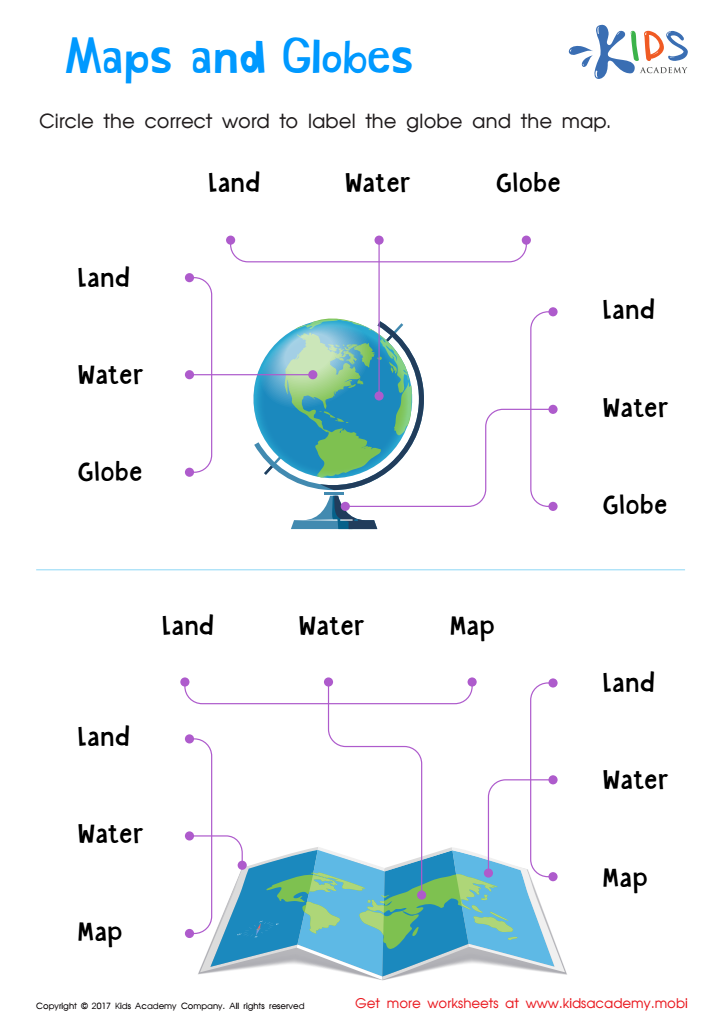Geography skills Social Studies Worksheets for Ages 3-9
3 filtered results
-
From - To
Explore our engaging Geography Skills Social Studies Worksheets designed for ages 3-9! These interactive resources help young learners develop essential geography concepts, including map-reading, understanding continents, countries, and cultural diversity. Tailored to foster curiosity and comprehension, our worksheets feature vibrant illustrations and age-appropriate activities. Whether at home or in the classroom, these fun exercises encourage kids to discover the world around them through creative learning methods. Perfect for early learners, our Geography Skills worksheets will spark a passion for exploration and help children gain confidence in their social studies knowledge. Start your child’s adventure in geography today!


World Maps Worksheet


Intercardinal Directions Worksheet
Geography skills in Social Studies provide young learners with critical foundational understanding of the world around them. For children ages 3-9, these skills foster curiosity and a sense of place, helping them make sense of their environment and the diverse cultures within it. Understanding geospatial concepts, such as maps, locations, and connections, lays the groundwork for future learning in various disciplines, including history and science.
Incorporating geography into early education promotes critical thinking and problem-solving abilities as children learn to navigate their surroundings. It also cultivates empathy, encouraging children to appreciate and respect different cultures and lifestyles. When parents and teachers engage children in geographic activities, such as exploring local landmarks or discussing world cultures, they reinforce essential communication skills and expand vocabulary.
Moreover, geography skills align with broader educational goals, supporting social-emotional development by helping children establish their identity and understand their role in the community and the world. By nurturing geographic literacy, parents and educators play a vital role in shaping globally aware, responsible citizens ready to thrive in an increasingly interconnected world. Therefore, integrating geography into early childhood education can have lasting benefits for children's intellectual and social growth.


 Assign to My Students
Assign to My Students






.jpg)













